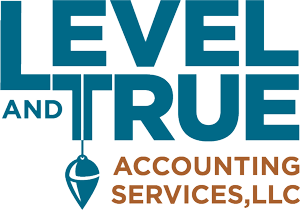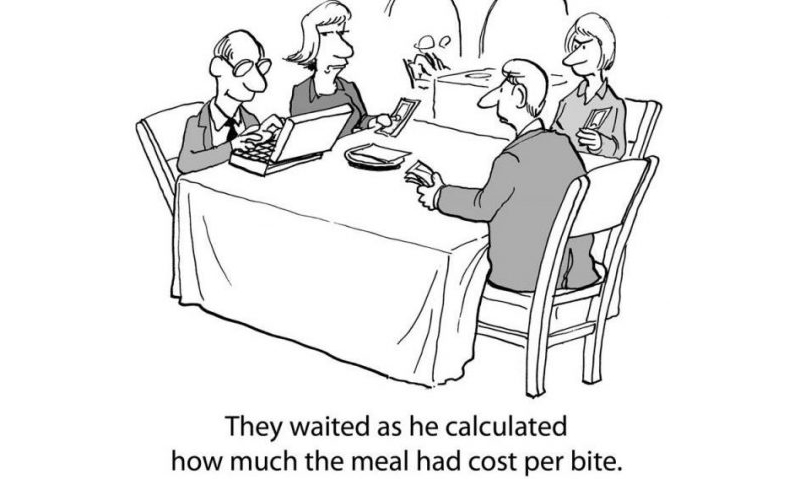Most of us have heard the famous refrain about the two unescapable eventualities: death and taxes. Although we would prefer to avoid considering either subject, the ears of most business owners do perk up when hearing the phrase “tax deduction”. So when the Qualified Business Income Deduction was included in the recent Tax Cuts and Job Act (also known as TCJA), as a small business owner, it caught my attention.
The TCJA tax reform is potentially a game changer for small businesses
This tax reform bill reduced the Corporate Tax Rate from 35% to 21%, which brought relief to many larger business, and was intended to make U.S. businesses more competitive internationally. But lowering the corporate rate would give C-Corps an unfair advantage over other entity types, so Congress included an incentive for the other small business types: a 20% deduction of business income that flows to the business owner’s personal tax return. This sounded very appealing to me.
Unfortunately, not only are taxes certain, they are also complex. Although businesses generally have benefited from this new deduction, it has taken the tax community considerable time and effort to fully understand the impact of these new tax rules. The traditional rules for selecting the correct entity type are no longer necessarily valid.
Over the past year I have attended various training seminars on the subject of the Qualified Business Income Deduction (also known as Section 199A). Most of the focus has been on the exceedingly complex tax calculations for business owners with taxable income exceeding $157,500 (or $315,000 if Married Filing Joint). But I really wanted to understand how this deduction would benefit the smaller business owners, the ones in the lower tax brackets. So I ran some scenarios and this is what I found.
Section 199A: the issue of taxable income versus business income
A 20% deduction of business income sounds pretty straight forward to calculate, but there is a caveat in the formula that can seriously reduce or even totally eliminate this deduction. The formula requires a comparison of taxable personal income to “qualified business income” (also called QBI). The deduction allowed is 20% of the smaller number. So what does this mean for the typical small business owner?
If you (and your spouse, if Married Filing Joint) are solely self employed with no other major sources of income, your QBI deduction will likely be based on your taxable income, which could be considerably less than your business income. Why? Your taxable income is what is left over after you have taken out your standard or itemized deduction and any other allowed deductions from your total personal income. How much of a difference are we talking about?
The standard deduction for 2018 was between $12,000 and $24,000, depending on your filing status, and that will probably be the biggest factor in this calculation. Small business owners also deduct half of their own Self Employment Tax (typically 15.3% of total business income). Other deductions such as your Health Savings Account, a SEP or a SIMPLE retirement plan, or the Self Employed Health Insurance deduction may further reduce your allowed QBI deduction, since they affect your taxable income.
This formula has a lot of moving pieces that should be included in your tax planning considerations. When your QBI deduction is based on taxable income instead of business income, it essentially makes these other deductions less valuable.
If your business is an S-Corp and you are receiving “reasonable compensation” in the form of wages, or if your spouse is employed (in your business or elsewhere) your calculation will likely be a straight 20% of business income. The tipping point is basically when your wages are less than your other deductions.
How the concept of “reasonable compensation” could affect the QBI deduction
The concept of “reasonable compensation” can be problematic for S-Corps. Since S-Corp owners only pay employment taxes on their wages, many have preferred to take distributions instead of salary. If the IRS feels they aren’t taking enough compensation as wages, it may decide to reclassify a portion of their distributions. Now that the QBI deduction is also affected by the amount of wages paid, the IRS will have even more reason to scrutinize the amount of distribution taken by S-Corp owners.
Many businesses employ the spouse, but not always officially “on the books”. In the past, that has never really been an issue with the IRS, since couples filing jointly are reporting all their income together anyway. Under the new tax laws, choosing not to pay your spouse could result in a higher QBI deduction. This could potentially raise an issue with “reasonable compensation” for spouses in future IRS audits. This problem could be legitimately avoided by forming a partnership with the spouse instead of paying them as an employee.
The importance of professional guidance in small business tax planning
After all this tax talk, is your head spinning a bit? Most likely. Business taxes are complex and this new tax deduction is no exception to the rule. Without the proper guidance, business owners may miss out on legitimate tax savings.
Tax planning is an important part of business management. When small business owners wait until tax time to seek tax advice, tax preparers can only do damage control. Savvy business owners will proactively seek out professional tax guidance.
Accurate and up-to-date accounting records provide the working data needed to make meaningful tax forecasts. The staff at Level and True Accounting Services LLC can help you organize your business books so you are prepared to make solid management decisions. If you don’t currently have a tax accountant, we would be also be happy to introduce you to one of the excellent accountants that we frequently work with.
This article is not intended to be used as tax advice. A more detailed description of the QBI deduction is available on the IRS official website.
Some final notes:
For the purpose of this discussion we are using 2018 tax numbers.
While many aspects of TCJA that went into effect in 2018 will expire in 2025, the new corporate rate is permanent.
When taxable income exceeds $157,500 (or $315,000 if Married Filing Joint), the deduction begins to phase out for business types considered to be “Special Service Trades or Business”. This is also the income level where the individual tax rates jump from 24% to 32%.
Even for eligible businesses, at that taxable income level a very creative formula goes into effect for QBI: “the lesser of Qualified Business Income X 20% or the greater of W-2 wages X 50% or W-2 wages X 25% plus 2.5% of qualified property.
Two more limitations: Capital Gains is not included in income for the QBI comparison and prior business losses incurred from 2018 forward are carried forward to current year business income for calculation of the credit.
– Written by Gina Palacio, Owner of Level & True Accounting Services LLC

